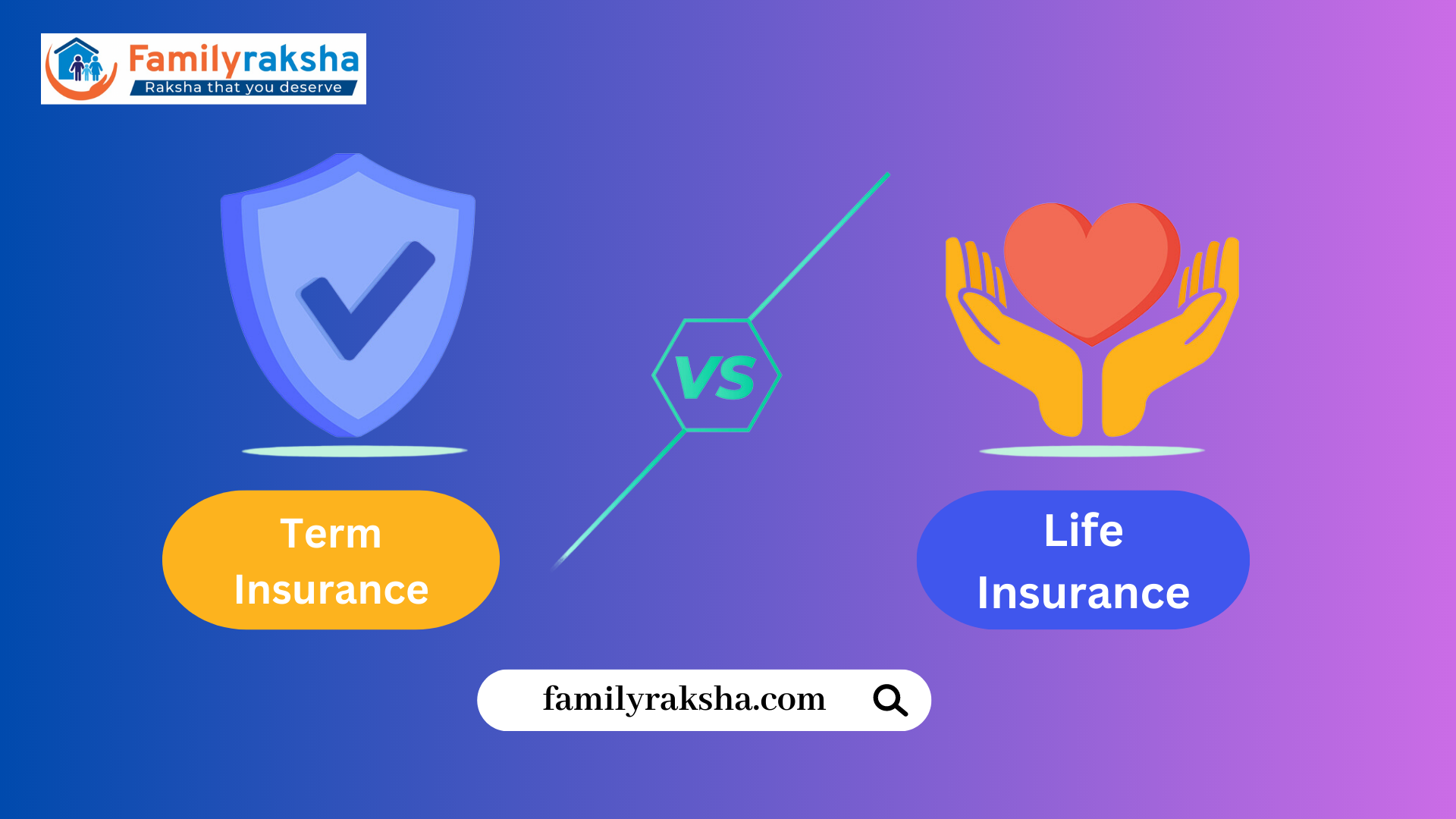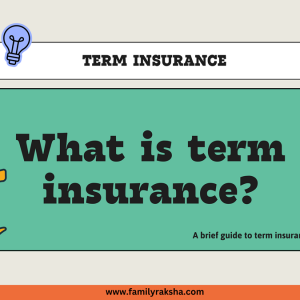When it comes to safeguarding our loved ones and securing their financial future, insurance plays a crucial role. Among the various types of insurance available, two popular options are term insurance and life insurance. Many people often wonder what sets these two apart and which one suits their needs best. In this article, we will delve into the difference between term insurance and life insurance. Exploring their key characteristics, benefits, and use cases to help you make an informed decision.
Difference Between Term Insurance and Life Insurance
Term insurance and life insurance are both forms of life coverage, but they differ significantly in terms of duration, cost, and features. Let’s understand these distinctions in detail:
1. Definition
Term Insurance: Term insurance is a type of life insurance that provides coverage for a specific period or term, typically ranging from 10 to 40 years. If the policyholder passes away during the policy term, the death benefit is paid out to their registered beneficiaries.
Whole Life Insurance: Life insurance, also known as whole life or permanent insurance, covers the policyholder for their entire lifetime. It guarantees a death benefit payout whenever the insured passes away if the premiums are paid.
2. Coverage Duration
Term Insurance: As mentioned earlier, term insurance offers coverage for a specific term, which could be anywhere from 10 to 40 years. Once the policy term expires, the coverage ceases, and if the policyholder outlives the term, there is no payout.
Life Insurance: Life insurance, being permanent coverage, extends throughout the policyholder’s life. The policy remains in force if the premiums are paid, ensuring the beneficiaries receive the death benefit eventually.
3. Premiums
Term Insurance: One of the significant advantages of term insurance is its affordability. Since it provides coverage for a limited period, the premiums are generally lower, making it an attractive option for those on a budget.
Life Insurance: Life insurance premiums tend to be higher compared to term insurance due to the lifelong coverage and the potential for cash value accumulation.
4. Cash Value
Term Insurance: Term insurance does not accumulate cash value over time, as it is designed solely to provide a death benefit in case of the policyholder’s demise during the term.
Life Insurance: Life insurance, especially whole life or universal life policies, builds cash value over time, which the policyholder can access through loans or withdrawals.
5. Renewability
Term Insurance: Most term insurance policies offer the option to renew at the end of the term, but the premiums may increase significantly with each renewal.
Life Insurance: Life insurance policies do not require renewal as they are in force for the policyholder’s entire life, provided premiums are paid on time.
8. When to Choose Term Insurance
Young Families: Term insurance is an excellent choice for young families seeking affordable coverage to protect their loved ones financially in case of an untimely death.
Temporary Needs: If you have specific financial responsibilities, such as a mortgage or children’s education, that will last for a defined period, term insurance can provide adequate protection during that time.
Budget Constraints: If your budget is limited and you require a higher coverage amount, term insurance can be a cost-effective solution.
9. When to Choose Life Insurance
Lifetime Coverage: If you want life-long coverage and the certainty of a death benefit payout regardless of when you pass away, life insurance is the ideal option.
Estate Planning: Life insurance can be a vital tool in estate planning. Providing liquidity to cover estate taxes and ensuring a smooth transfer of wealth to beneficiaries.
Wealth Accumulation: Some life insurance policies offer cash value growth. Which can be a tax-advantaged way to accumulate wealth over time.
FAQs (Frequently Asked Questions)
Is term insurance cheaper than life insurance?
Yes, term insurance is generally more affordable than life insurance due to its limited coverage period.
What happens if I outlive my term insurance policy?
If you outlive your term insurance policy, there is no payout or return of premiums. The coverage simply expires.
Can I convert my term insurance to a life insurance policy?
Yes, many term insurance policies offer a conversion feature, allowing you to convert to a permanent life insurance policy without a medical exam.
Are the premiums for life insurance fixed throughout the policy term?
Yes, for traditional whole life insurance policies, the premiums remain fixed throughout the policyholder’s life.
Does life insurance provide any living benefits?
Yes, some life insurance policies, such as universal life, offer living benefits in the form of cash value that policyholders can access during their lifetime.
Is term insurance suitable for estate planning purposes?
Term insurance may not be the best choice for estate planning, as it only provides temporary coverage and lacks the cash value component.
Conclusion
In conclusion, the choice between term insurance and life insurance depends on your unique financial needs and goals. Term insurance is an excellent option for those seeking affordable, temporary coverage, while life insurance offers lifelong protection and potential cash value accumulation. Consider your budget, long-term objectives, and specific financial responsibilities before deciding. It’s also advisable to consult with a qualified insurance professional who can guide you through the process and help you find the most suitable coverage for your needs.
Remember, insurance is an essential part of financial planning providing peace of mind and security to you and your loved ones throughout life’s journey.





